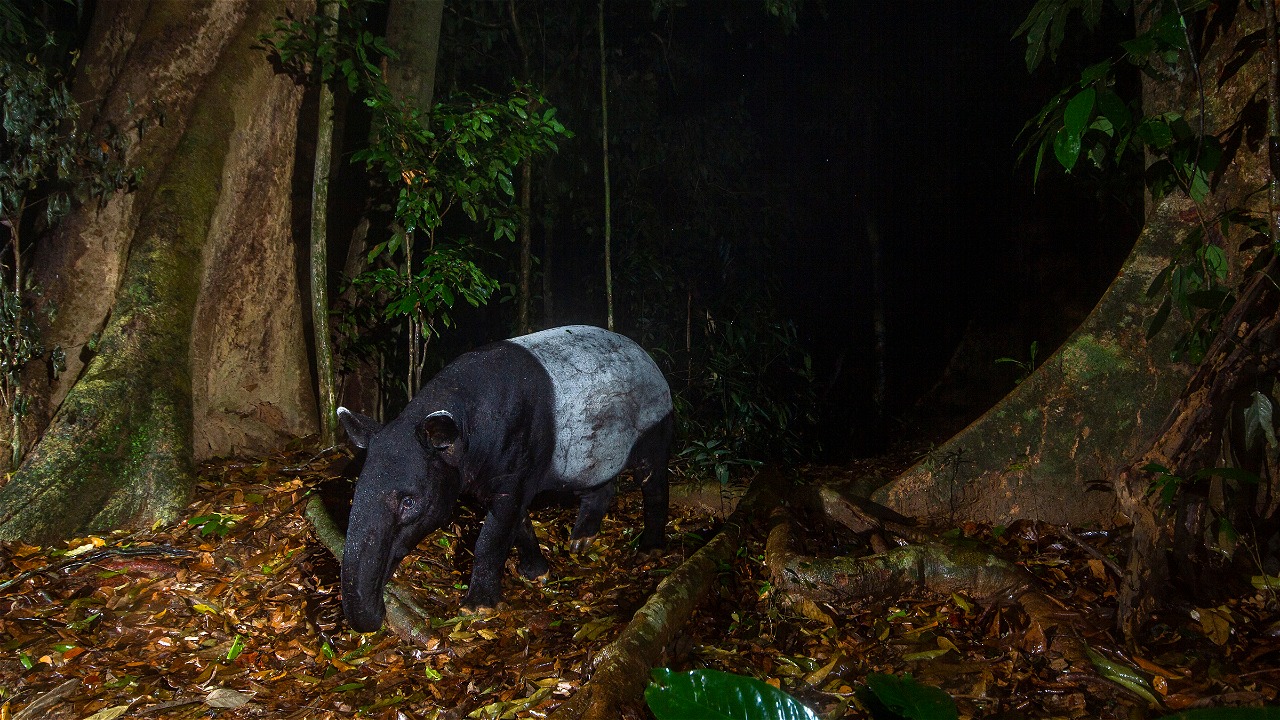SAVING TAPIRS IN TESSO NILO
A Tapir (Tapirus indicus) that became entangled in Tesso Nilo National Park, Pelalawan, Riau was rescued by the Elephant Flying Squad team and officers from Tesso Nilo National Park on October 16, 2017.
The front left leg of this adult female Tapir was entangled in the thicket of the TNTN boundary. The team who arrived at the location found the Tapir trying to free her leg from the snare. The team attempted to release the Tapir from the snare wrapped around its leg but initially the Tapir reacted quite aggressively. The team continued to help and after some time the Tapir managed to escape the snare.
The team chased the Tapir to release the snare it was carrying and after untying the snare then administered treatment in the form of wound medicine gusanex and betadine. The left leg that was entangled was not injured, it is estimated that this Tapir was only entangled one night so it has not suffered significant injury. However, the team found that the front right foot appeared to have been injured previously, as the nails were almost detached. Suspecting that the Tapir had been caught in a snare before, the team examined the right foot and confirmed that there was no sticky snare on the foot. After administering treatment the team then released the Tapir who then ran into the forest.
From the team's investigation around the location, the snare was probably intended to ensnare deer. The team also searched around the location and found two snares that were still installed. Information on the entangled Tapir originated from residents who reported it to the Tesso Nilo National Park Center. The head of the TNTN Region I Section, Taufik Hariyadi, SP conveyed the information to the Elephant Flying Squad team, which was preparing to carry out routine patrols around Tesso Nilo National Park using elephants. The team immediately discussed a plan to rescue the Tapir and went to the scene, which is about 1 kilometer from the Region I section office.
The team was relieved and happy to have successfully rescued and treated the Tapir, which lasted almost 3 hours. However, the team was very concerned about the presence of snares around the location. This will be a concern for the team in conducting elephant patrols to monitor the presence of snares around the patrol area. The Elephant Flying Squad, a collaboration between WWF and Tesso Nilo National Park, is a human-elephant conflict management team. The team conducts routine patrols to prevent elephant disturbances in gardens and community settlements.
Tapirs are herbivorous animals that feed on young leaves in forests or riverbanks. It has a pig-like body shape, rhinoceros-like ears and a long snout similar to that of a pangolin, while its call is more like that of a bird than a mammal. Tapirs are solitary animals, except during mating season. Its activities are mostly nocturnal. Feeding is usually done while still on the move. The tapir's range is very wide as they tend to walk long distances to find locations rich in mineral salts. In the past, Asian tapirs could be found throughout the lowland rainforests of Southeast Asia including Cambodia, Indonesia, Laos, Malaysia, Burma Myanmar, Thailand and Vietnam. But its population has declined in recent years, and like other tapir species is also threatened with extinction.





